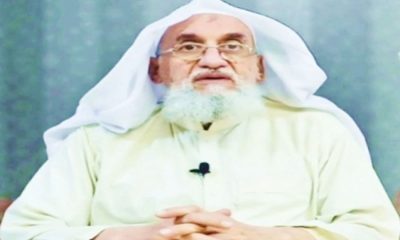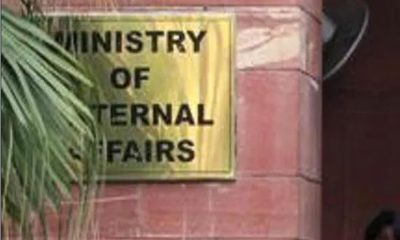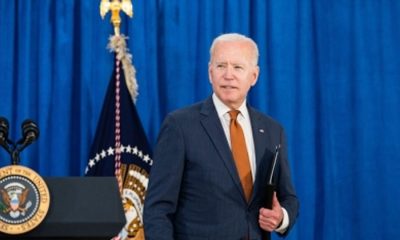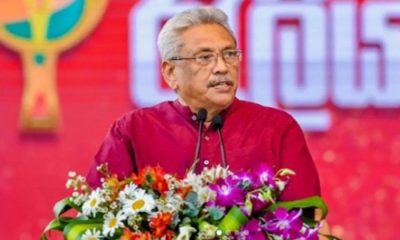International News
Pakistan minister warns India of ‘potentially catastrophic consequences’ from Kashmir tensions
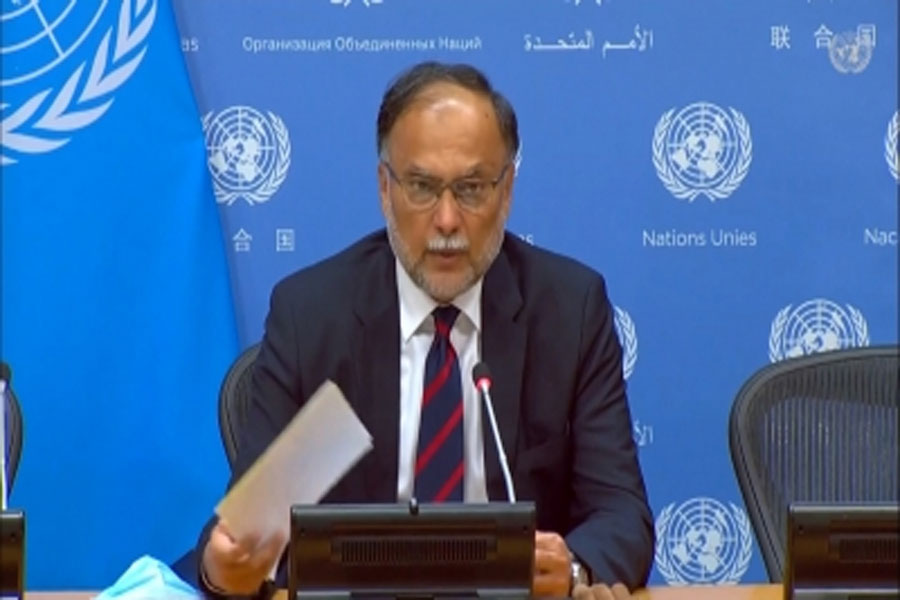
While admitting to a “fragile” food situation in his country, Pakistan’s Planning and Development Minister Ahsan Iqbal has thrown a warning that India’s policies in Kashmir could have “potentially catastrophic consequences” from another conflict.
“If the tensions created by India’s current policies in occupied Kashmir and aggressive postures are left unattended, it could lead to another conflict in the region with potentially catastrophic consequences,” he warned at a news conference here on Wednesday.
Listing a host of complaints about India’s treatment of the union territory, he said, “I emphasise the need to resolve the Jammu and Kashmir dispute in accordance with the resolutions of the Security Council and the wishes of the people of Jammu and Kashmir.”
Pakistan has, however, ignored Security Council Resolution 47 adopted on April 21, 1948, that requires it to withdraw from all of Kashmir its nationals and tribesmen who had intruded there and not to give them any aid.
Iqbal admitted that his country’s food station is “fragile” and that it came to the “brink” of a Sri Lanka-like scenario but turned his attention to Kashmir, which does not face a “fragile” food situation like the part of it under Pakistan occupation.
“Pakistan’s food security situation has become fragile (and) we will need to import wheat this year, whereas the supply chain of wheat at global level is already disrupted,” Iqbal said.
The government of Prime Minister Shehbas Sharif has taken some tough measures and “saved. Pakistan from Sri Lanka-like situation where almost we were at the brink of that scenario”.
“We had analysts predicting how many weeks will it take for Pakistan to become like Sri Lanka,” but managed to avert it, he said.
In Washington, the International Monetary Fund announced on Wednesday that its staff had reached an agreement with Pakistan for $1.177 billion in emergency funding, but that would have to be approved by the Executive Board.
Iqbal said that his government would now have to stabilise the country’s economy.
Sri Lanka is facing an economic and political meltdown because of a lack of foreign exchange to pay for energy and food imports leading to severe shortages.
Outlining its country’s problems, Iqbal said, “Pakistan is facing challenges in food security, water security and energy security because of a whole host of issues ranging from climate change and global developments”.
He blamed its food insecurity on insufficient investment in agriculture and climate change.
Asked by a reporter about reports that India was planning to host a meeting of the G20 — the group of developed and developing nations and the European Union — in Kashmir, Iqbal said that if countries participated in it there, it would amount to “validating” what he called India’s “unilateral occupation of Jammu and Kashmir” and throwing “Security Council resolutions in the dustbin of history”.
“If the Security Council has any sanctity, if it’s resolutions of any sanctity, I hope that the G20 countries will not violate the sanctity of those resolutions by going there and validating the unilateral occupation of Jammu and Kashmir,” he said.
International News
Iran warns it will target Israel’s ‘secret nuclear sites’ if attacked
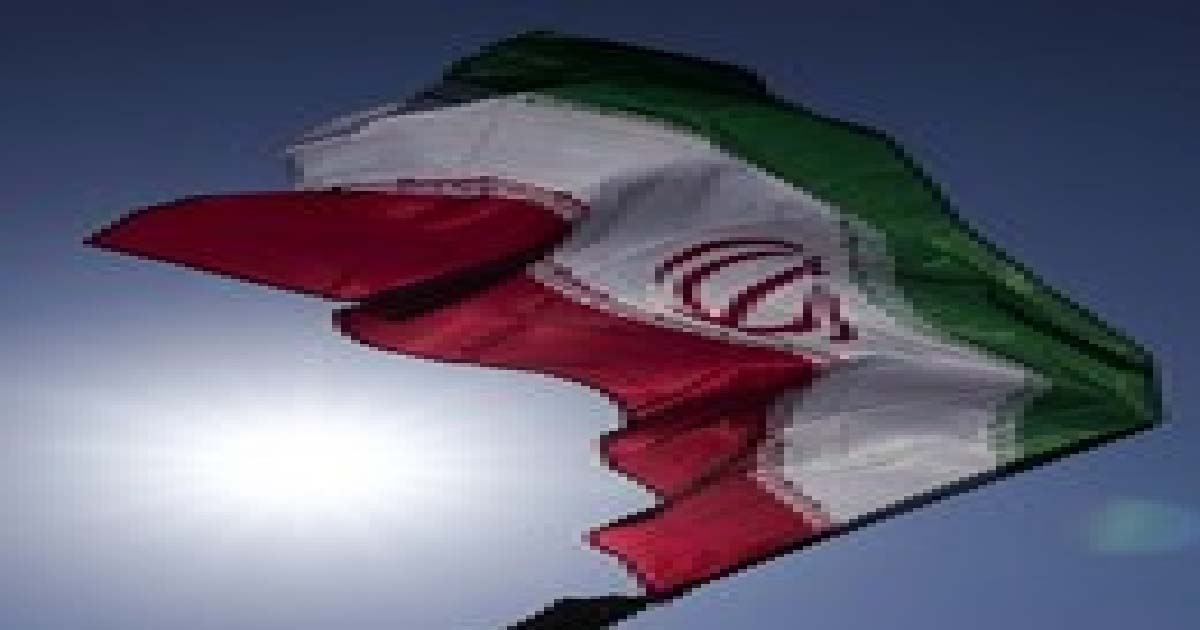
Tehran, June 10: Iran’s top security body warned that its armed forces would immediately target Israel’s “secret nuclear facilities” if the Islamic Republic comes under military attack, following claims it has obtained “sensitive Israeli intelligence.”
The Supreme National Security Council (SNSC) issued the statement days after Intelligence Minister Esmaeil Khatib said Iran had acquired a “significant cache” of Israeli documents through intelligence operations, Xinhua news agency reported.
According to the council, months of intelligence gathering had enabled Iran’s armed forces to identify high-value Israeli targets for potential retaliatory strikes, should Israel initiate military action against Iranian interests.
“This forms part of a broader strategic initiative aimed at countering disinformation by hostile actors and reinforcing Iran’s deterrent capabilities,” the SNSC said.
Tehran’s access to Israeli intelligence would allow it to swiftly target “concealed nuclear sites” in the event of an Israeli strike on Iranian nuclear infrastructure, the council said, adding that the information also supports proportionate retaliation against attacks on Iran’s economic or military assets.
Israel is believed by many to possess nuclear weapons, though it has never officially confirmed or denied this, maintaining a longstanding policy of strategic ambiguity.
International News
‘True spirit of friendship’ between India and Iran hailed after rescue of kidnapped citizens
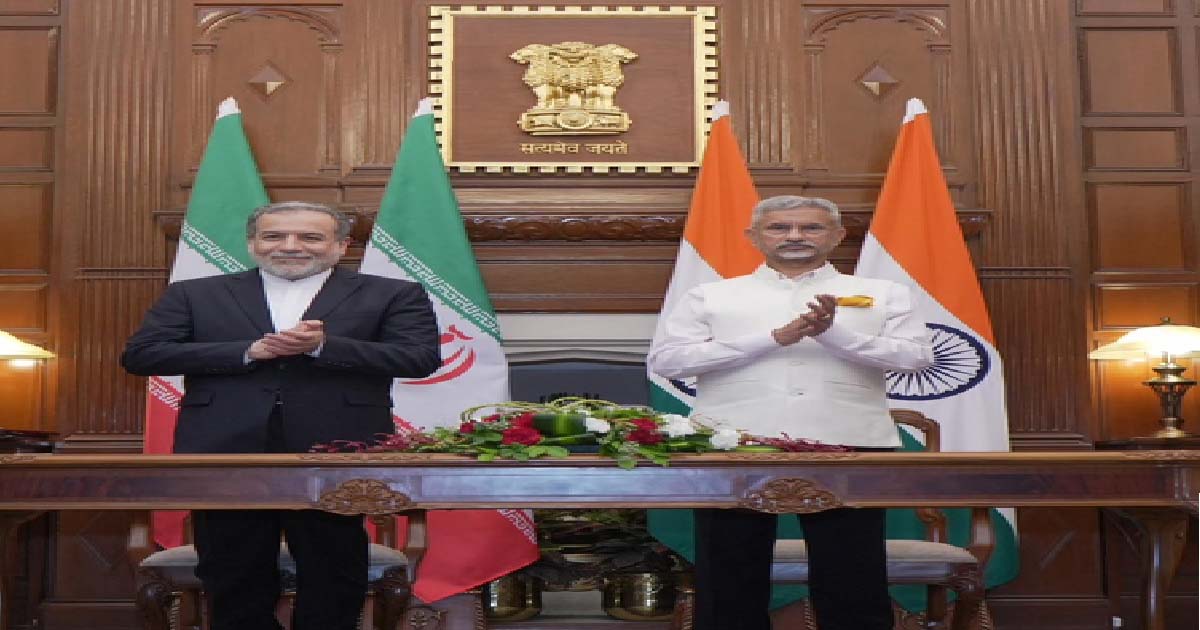
Tehran, June 4: India on Wednesday thanked the Iranian government for its swift and effective efforts in securing the release of three kidnapped Indian citizens, emphasising that the timely support reflects “true spirit of friendship” that exists between the two nations.
“The three kidnapped Indian citizens have been safely rescued and are now under the care of the Embassy of India, which is facilitating their early repatriation. We sincerely thank the Government of Iran for their swift and effective efforts in securing their release,” the Embassy of India in Iran posted on X.
“Your support reflects the true spirit of friendship between two nations,” it added.
Late Tuesday, the Embassy of Iran in India confirmed that Tehran police had freed the missing individuals, citing a report from Media.
“Three missing Indian citizens freed by Tehran police. Local media in Iran say police have found and released three Indian men who had gone missing in Iran,” the Iranian Embassy stated.
The trio was reportedly rescued following a police operation targetting the hostage-takers in Varamin in south Tehran, Media reported.
According to reports, the three Indian men – all hailing from Punjab and identified as Jaspal Singh, Hushanpreet Singh, and Amritpal Singh – had disappeared shortly after landing in Tehran on May 1.
They were reportedly on their way to Australia after being promised lucrative jobs by a local travel company.
The Indian Embassy in Tehran had issued a statement on May 28, following an approach by the family members of the missing men, who expressed serious concern over their relatives’ sudden disappearance.
The statement read, “Family members of three Indian citizens have informed the Embassy of India that their relatives are missing after having travelled to Iran. The Embassy has strongly taken up this matter with the Iranian authorities and requested that the missing Indians should be urgently traced and their safety should be ensured. We are also keeping the family members regularly updated on the efforts being made by the Embassy.”
Reports also suggested that the families received ransom demands of Rs one crore from unknown individuals, with the threatening calls originating from Pakistani phone numbers.
The details raised serious alarm, prompting swift diplomatic engagement from both sides.
The Iranian Embassy in India, responding to the developments, stated that the case was being closely followed by the Consular Affairs Department of Iran’s Ministry of Foreign Affairs.
The Embassy also issued a warning to Indian citizens, advising them “not to be deceived by the promises of unauthorised individuals or illegal Indian agencies offering travel to other countries.”
India has also previously issued travel advisories for its nationals travelling to Iran, urging them to exercise caution, remain in contact with the Indian Embassy in Tehran and consulates, and avoid engagement with unverified travel agents or intermediaries.
International News
Indian Hajj mission deploys assisting teams for pilgrims’ Mina journey
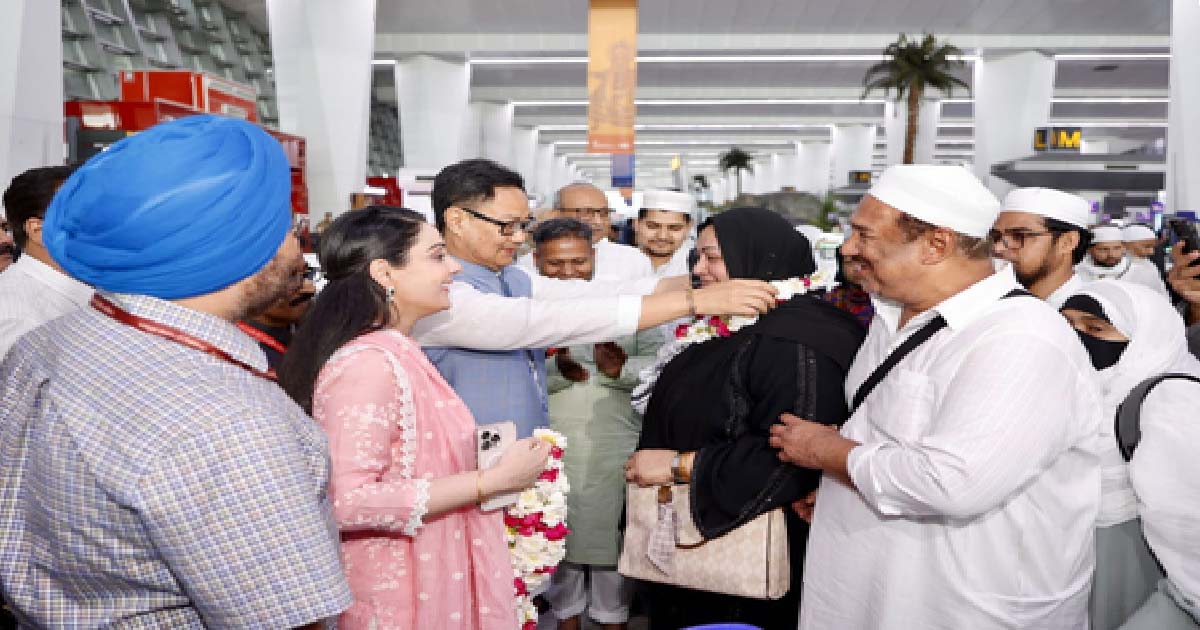
Riyadh, June 4: Indian Hajj pilgrims are assisted by ‘Team India’ officials as the movement to Mina from Mecca begins, marking the start of the Five-Day Core Hajj Period in Saudi Arabia.
The team, in coordination with Saudi Authorities, is facilitating a smooth journey for all the pilgrims, underscoring India’s commitment to ensuring the well-being of all its citizens.
“Movement of Hajj pilgrims to Mina started today! ‘Team India’ officials are on duty to facilitate the movement of Indian Hajj pilgrims to smoothly avail the transport services to reach their designated camps in Mina,” the Indian Hajj Pilgrims office posted on X on Wednesday.
Indian officials were assisting vulnerable Hajj pilgrims in catching buses to Mina.
Union Minister of Minority Affairs Kiren Rijiju extended wishes to the Indian pilgrims performing Hajj and ensuring assistance to them as the journey to Mina begins.
“My heartfelt wishes to all Indian pilgrims performing Hajj this year. Our Hajj Mission, led by officials & teams, is fully prepared in coordination with Saudi authorities. Admin and medical teams will be present in all Mina camps. For any assistance, use the Hajj Suvidha App or toll-free numbers. May your Hajj be smooth, blessed and spiritually fulfilling,” Rijiju posted on X.
Earlier on Monday, India’s Ambassador to Saudi Arabia, Suhel Ajaz Khan, addressed the Indian Hajj pilgrims ahead of the core rituals.
He extended his best wishes and assured them of full support, highlighting the presence of administrative and medical deputationists to assist pilgrims throughout the journey.
Meanwhile, India’s Consul General of Jeddah Fahad Ahmed Khan Suri chaired a briefing on arrangements for medical care and assistance in the Mashaer Region (Tent city of Mina and plains of Muzdalifah & Arafat) for Indian Hajj Pilgrims.
The session was attended by the Indian Consul (Hajj), Muhammed Abdul Jaleel, and officials, doctors and nurses from ‘Team India’ deployed in Hajj 2025.
Last week, Indians who embarked on Hajj pilgrimage appreciated the arrangements and quality of facilities offered by the Indian government to ensure a smooth and seamless journey for all in Saudi Arabia.
“Indian pilgrims who went for Hajj 2025 through the Hajj Committee of India are very happy with the management of the Government of India and the facilities being provided there. It is the constant endeavour of the Ministry of Minority Affairs to ensure a comfortable and dignified journey for every Hajj pilgrim,” the Ministry of Minority Affairs posted on X.
Additionally, Union Minister of State for Minority Affairs, George Kurian also highlighted the dedicated efforts of the Centre in ensuring a smooth and successful Hajj for pilgrims.
-

 Crime3 years ago
Crime3 years agoClass 10 student jumps to death in Jaipur
-

 Maharashtra9 months ago
Maharashtra9 months agoMumbai Local Train Update: Central Railway’s New Timetable Comes Into Effect; Check Full List Of Revised Timings & Stations
-

 Maharashtra9 months ago
Maharashtra9 months agoMumbai To Go Toll-Free Tonight! Maharashtra Govt Announces Complete Toll Waiver For Light Motor Vehicles At All 5 Entry Points Of City
-

 Maharashtra9 months ago
Maharashtra9 months agoFalse photo of Imtiaz Jaleel’s rally, exposing the fooling conspiracy
-

 Crime9 months ago
Crime9 months agoBaba Siddique Murder: Mumbai Police Unable To Get Lawrence Bishnoi Custody Due To Home Ministry Order, Says Report
-

 National News9 months ago
National News9 months agoMinistry of Railways rolls out Special Drive 4.0 with focus on digitisation, cleanliness, inclusiveness and grievance redressal
-

 Maharashtra8 months ago
Maharashtra8 months agoMaharashtra Elections 2024: Mumbai Metro & BEST Services Extended Till Midnight On Voting Day
-

 National News10 months ago
National News10 months agoJ&K: 4 Jawans Killed, 28 Injured After Bus Carrying BSF Personnel For Poll Duty Falls Into Gorge In Budgam; Terrifying Visuals Surface



